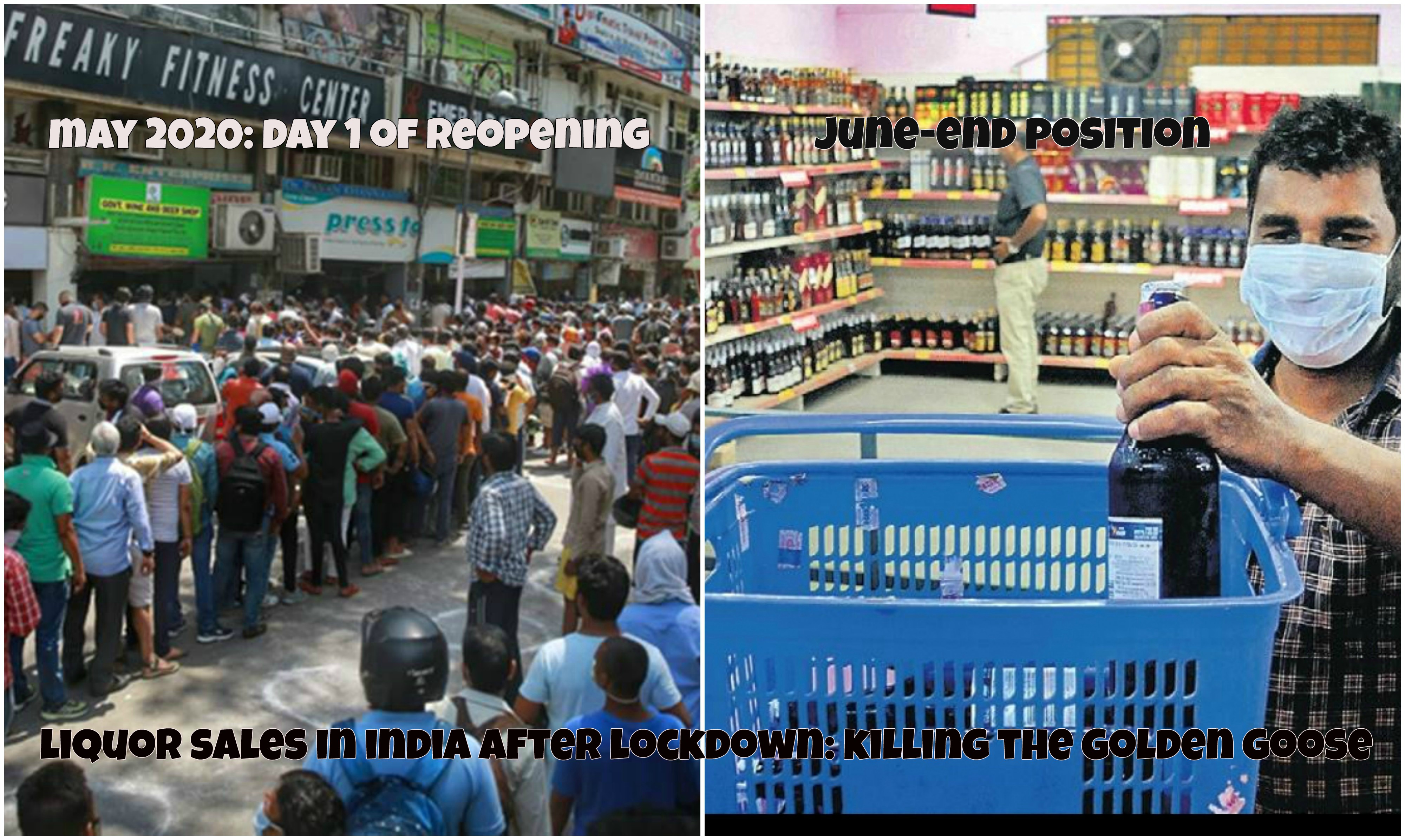

By Slogger
First publised on 2020-08-20 17:41:33
Governments all over the world are experts at killing the golden goose. It is often seen that they heavily tax some items in a bid to earn extra revenue. Often, the misplaced ire is on what are considered 'sin' goods, alcoholic drinks in particular. This happened in India when liquor shops were allowed to reopen after the pandemic-induced lockdown.
Most states thought that since people were addicted to liquor and were eagerly waiting for the shops to open, they would not mind paying a lot more than what they were doing before the closure. Hence several states, West Bengal and Delhi in particular imposed a hefty tax on both IMFL and country liquor. In West Bengal, a tax of 30 percent on MRP was levied on all spirits.
The first month of the reopening saw record sales of liquor all over India and also in West Bengal. The state government earned good revenue which was much in excess of what it used to earn in pre-Covid times. But from May onwards, sales began to dip alarmingly. The government had forgotten that the common man was also financially distressed due to business closures. Further, with bars remaining closed, a good part of the sales was not happening. Also, no parties were being held due to the fear of coronavirus and the restrictions in place. People also either restricted consumption or stopped buying due to the higher prices.
Faced with dipping revenue, the West Bengal government has decided to do away with the 'Covid tax'. It has decided to introduce a graded tax system that will levy progressive taxation based on the ex-factory price of the bottle. This is a sensible decision. The state government should not have listened to the bureaucrats in the first place. Hopefully, this will make it, and other state governments and the Centre, realize that it is better to keep taxes at low levels and earn from the increase in sales rather than keep taxes high and kill sales and tax revenue.











